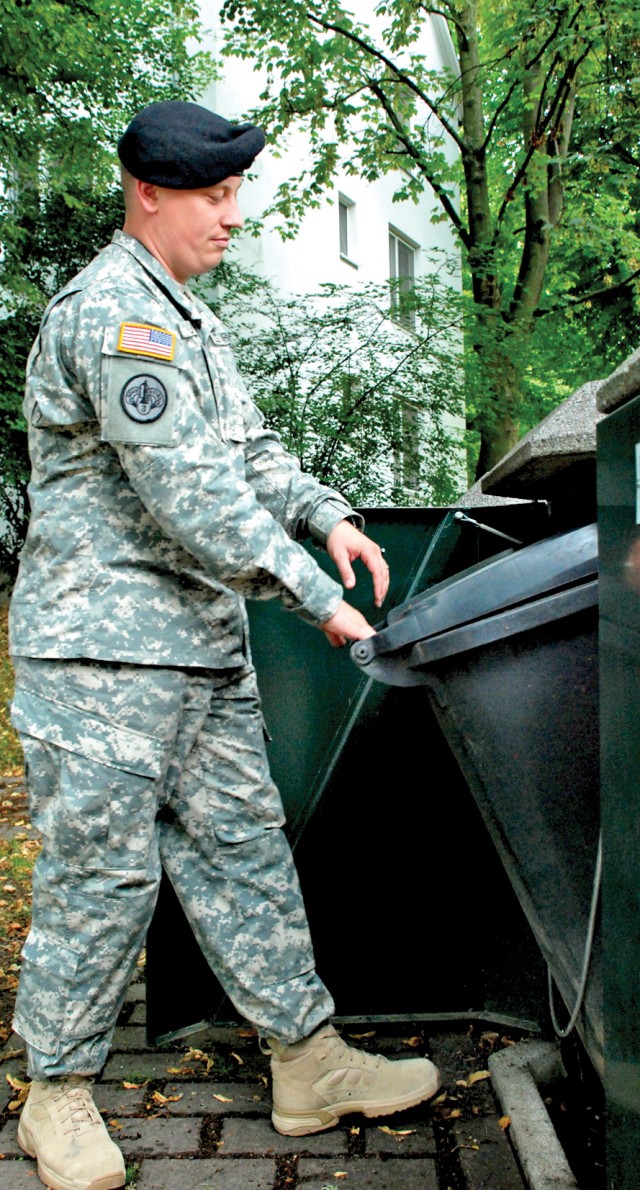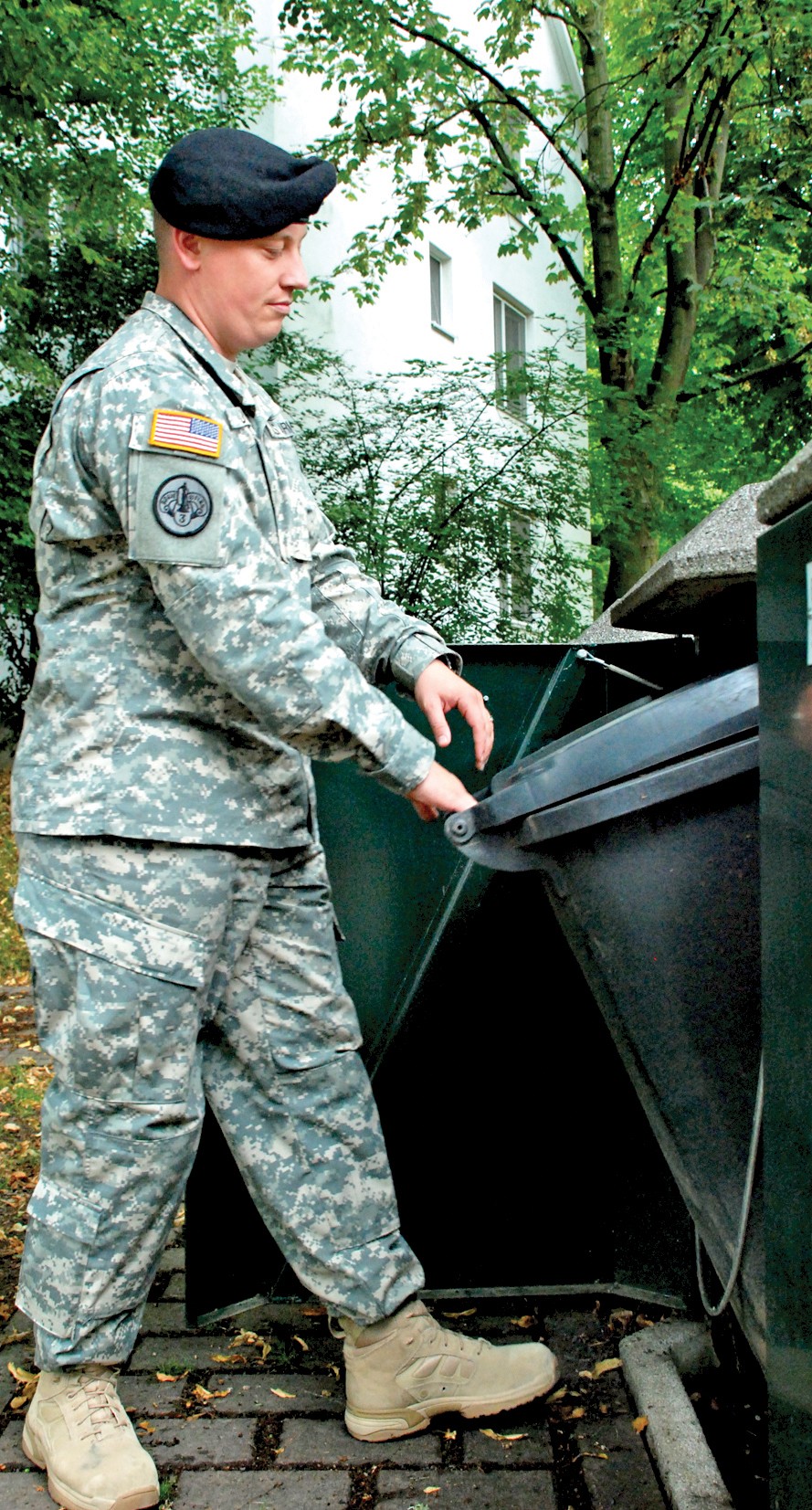WIESBADEN, Germany -- Recent trash talk by community members has led U.S. Army Garrison Wiesbaden officials to revamp practices aimed at cleaning up the community's housing areas.
As a result of feedback received from the refuse and recycling survey, and focus groups administered and facilitated during April and May, officials have launched a pilot project that will evaluate the trash disposal and recycling system in the Army Family Housing areas of Aukamm, Crestview and Hainerberg.
"We heard you. ... We got it. ... We're moving out because your voices matter," said Camille Howes, Customer Management Services officer and Interactive Customer Evaluation system administrator, who encouraged customers to continue to submit comments via the ICE system.
Roll out of the pilot project began with a two-week control phase to allow administrators to assess common issues that would possibly hinder full launch of the program. The program is now in a four-week full-run phase where each test building will have labeled trash bins, recycle literature posted in each stairwell and clearly marked recycle deposit areas. The phase also will include inspection checks, as feedback generated from the program will be used to improve processes in order to ensure a successful mass deployment.
"Our goal is to get trash off of the street and reduce misuse," said Peter Zeisberger, Directorate of Public Works - Operations Division, solid waste manager, who conducted an orientation for the pilot project's designated building and stairwell coordinators. "I know myself, I think, 'where does it go, really.'"
Feedback from the survey showed that recycling was deemed "very important," but nearly 60 percent of participants were unaware of local recycling standards. The consensus to have marked trash cans was more than half, as an even higher percentage felt the trashcan size was sufficient.
Additionally, a larger percentage of the more than 300 participants desired unit involvement to enforce the trash and recycling policy.
Therefore garrison leaders reiterated the vested authority of area, building and stairwell coordinators.
"They speak on behalf of the garrison leaders," said Sgt. 1st Class Ricky Jones, USAG Wiesbaden Housing noncommissioned officer. "The garrison commander and command sergeant major enforce violation offenses ... and in some cases the consequences have led to families being put out of their quarters."
While the project initially focuses on one building in each community, the garrison's uniquely situated housing areas present coordinators a few challenges.
"It's a great building and a great street, but it has it's shortcomings as a result of being on the main thoroughfare for Germans and Americans and traffic to the commissary and PX," said Staff Sgt. Timothy Wise Jr., Hainerberg pilot project building coordinator.
Despite the challenges, Wise remains hopeful and determined to make it work.
"We can make sure as Soldiers and NCOs that we are vigilant," said Wise. "We have to make sure we're getting everyone to do the right thing."
Garrison leaders said that by doing the right thing the community profits a couple of ways.
"We're doing it to make sure the community looks better. If we do it properly, then we save major dollars," Command Sgt. Maj. Hector Prince, USAG Wiesbaden.
For more information about recycling and refuse separation visit the garrison's website at www.wiesbaden.army.mil and click on the bottom right side of the home page.
Related Links:
2009 USAG Wiesbaden trash pick-up schedule and recycling guide


Social Sharing